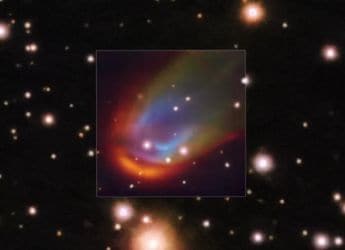- Home
- Internet
- Internet News
- Chinese Censors Probe Baidu, Youku Tudou Over Violent Shows: Xinhua
Chinese Censors Probe Baidu, Youku Tudou Over Violent Shows: Xinhua

Chinese censors are investigating 52 websites owned by firms including top search engine Baidu Inc and online video business Youku Tudou Inc over the distribution of violent and pornographic content, the official Xinhua news agency said on Thursday.
The investigation comes as Chinese authorities tighten their control over the Internet. In April, China's national anti-pornography office stripped Sina Corp of some online publication licences as part of the crackdown.
The latest websites under investigation, which include a web portal owned by Chinese Internet firm NetEase, are suspected of distributing shows such as cartoon series Grimm's Fairy Tales that contain violent and obscene content, Xinhua said, without citing sources.
The news agency said the websites could face criminal and civil penalties if convicted by China's State Administration of Press, Publication, Radio, Film and Television (SAPPRFT), but gave no further details.
(Also Read: China's Baidu wins US lawsuit over censored search results)
In April, SAPPRFT hit Internet video sites with rare takedown notices for popular U.S. TV shows such as The Big Bang Theory and NCIS without a clear reason. Such shows are not known to contain controversial sexual or political content.
Xinhua said that the investigation into the 52 websites was part of China's campaign to clean up the Internet. To date, Chinese press and publication regulators have banned 122 online publications and punished 93 websites, the news agency said.
© Thomson Reuters 2014
Catch the latest from the Consumer Electronics Show on Gadgets 360, at our CES 2026 hub.
Related Stories
- Samsung Galaxy Unpacked 2025
- ChatGPT
- Redmi Note 14 Pro+
- iPhone 16
- Apple Vision Pro
- Oneplus 12
- OnePlus Nord CE 3 Lite 5G
- iPhone 13
- Xiaomi 14 Pro
- Oppo Find N3
- Tecno Spark Go (2023)
- Realme V30
- Best Phones Under 25000
- Samsung Galaxy S24 Series
- Cryptocurrency
- iQoo 12
- Samsung Galaxy S24 Ultra
- Giottus
- Samsung Galaxy Z Flip 5
- Apple 'Scary Fast'
- Housefull 5
- GoPro Hero 12 Black Review
- Invincible Season 2
- JioGlass
- HD Ready TV
- Laptop Under 50000
- Smartwatch Under 10000
- Latest Mobile Phones
- Compare Phones
- Tecno Spark Go 3
- iQOO Z11 Turbo
- OPPO A6c
- Samsung Galaxy A07 5G
- Vivo Y500i
- OnePlus Turbo 6V
- OnePlus Turbo 6
- Itel Zeno 20 Max
- Lenovo Yoga Slim 7x (2025)
- Lenovo Yoga Slim 7a
- Lenovo Idea Tab Plus
- Realme Pad 3
- Garmin Quatix 8 Pro
- NoiseFit Pro 6R
- Haier H5E Series
- Acerpure Nitro Z Series 100-inch QLED TV
- Asus ROG Ally
- Nintendo Switch Lite
- Haier 1.6 Ton 5 Star Inverter Split AC (HSU19G-MZAID5BN-INV)
- Haier 1.6 Ton 5 Star Inverter Split AC (HSU19G-MZAIM5BN-INV)















